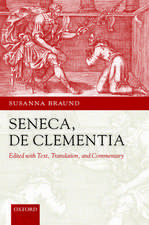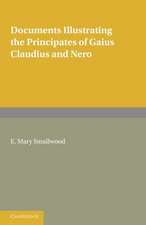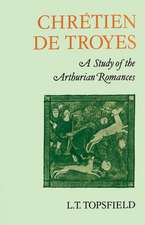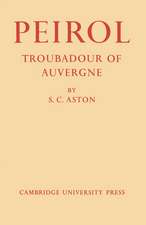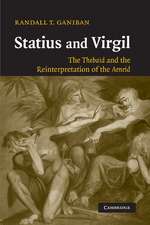The Dream of Bernat Metge
Autor Richard Vernieren Limba Engleză Hardback – 9 aug 2002
Preț: 247.40 lei
Preț vechi: 296.34 lei
-17% Nou
Puncte Express: 371
Preț estimativ în valută:
47.34€ • 49.43$ • 39.18£
47.34€ • 49.43$ • 39.18£
Carte tipărită la comandă
Livrare economică 05-19 aprilie
Preluare comenzi: 021 569.72.76
Specificații
ISBN-13: 9780754606918
ISBN-10: 0754606910
Pagini: 128
Dimensiuni: 153 x 219 mm
Greutate: 0.45 kg
Ediția:1
Editura: Taylor & Francis
Colecția Routledge
Locul publicării:Oxford, United Kingdom
ISBN-10: 0754606910
Pagini: 128
Dimensiuni: 153 x 219 mm
Greutate: 0.45 kg
Ediția:1
Editura: Taylor & Francis
Colecția Routledge
Locul publicării:Oxford, United Kingdom
Cuprins
Contents: Introduction; The Dream of Bernat Metge: Book one; Book two; Book three; Book four; Appendix: Apologia; Bibliography; Index.
Recenzii
'As a breakthrough in the modern dissemination of Metge's masterpiece, Vernier's effort is most commendable: bridging over centuries of oblivion, it...provides [the reader] with an excellent translation... Metge is being introduced to a new wide readership in a distinguished way...' Nottingham Medieval Studies 'Richard Vernier sets out the turbulent political background in a lively and elegant introduction and his translation [...] combines down-to-earth zest with fluency.' Medium Aevum
Descriere
The Dream of Bernat Metge is the first English translation of Lo Somni, a prose dialogue written around 1397 by the Catalan humanist Bernat Metge (?1340-1413). It stands as a noteworthy example of nascent humanism and a vivid document of contemporary customs in the Crown of Aragon. Richard Vernier provides an extensive original introduction, as well as an annotated translation of the text. In the introduction, Vernier places the text in its historical and cultural background, and supplies a brief biography of the author. He discusses literary antecedents of Lo Somni and its value in the development of Catalan prose. He also traces the history of the text from the Middle Ages to its rediscovery in the nineteenth century. This first English-language edition of Lo Somni will interest historians and scholars of literature, philosophy and Romance languages. This translation provides a unique opportunity for comparative studies with other Western European medieval texts and authors.




